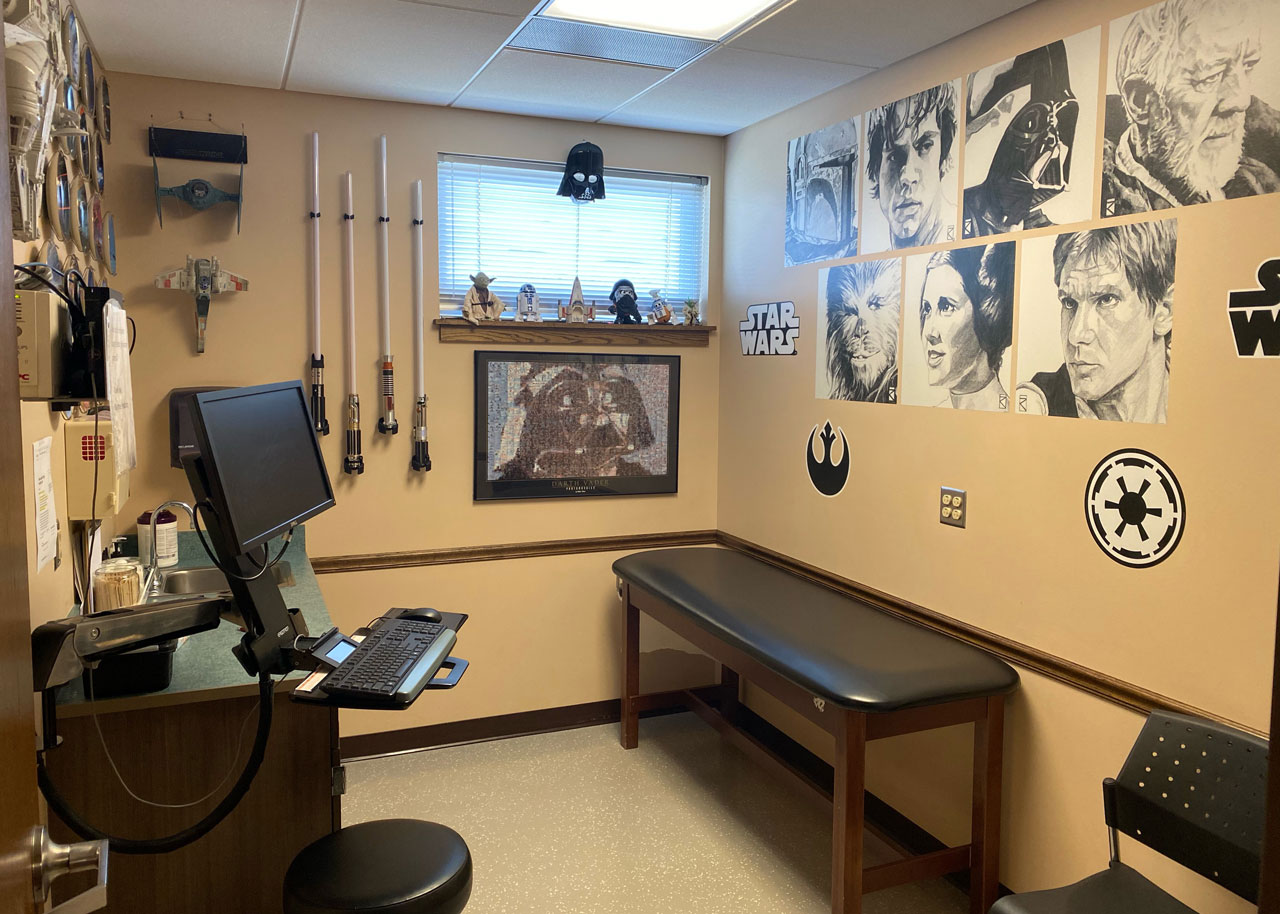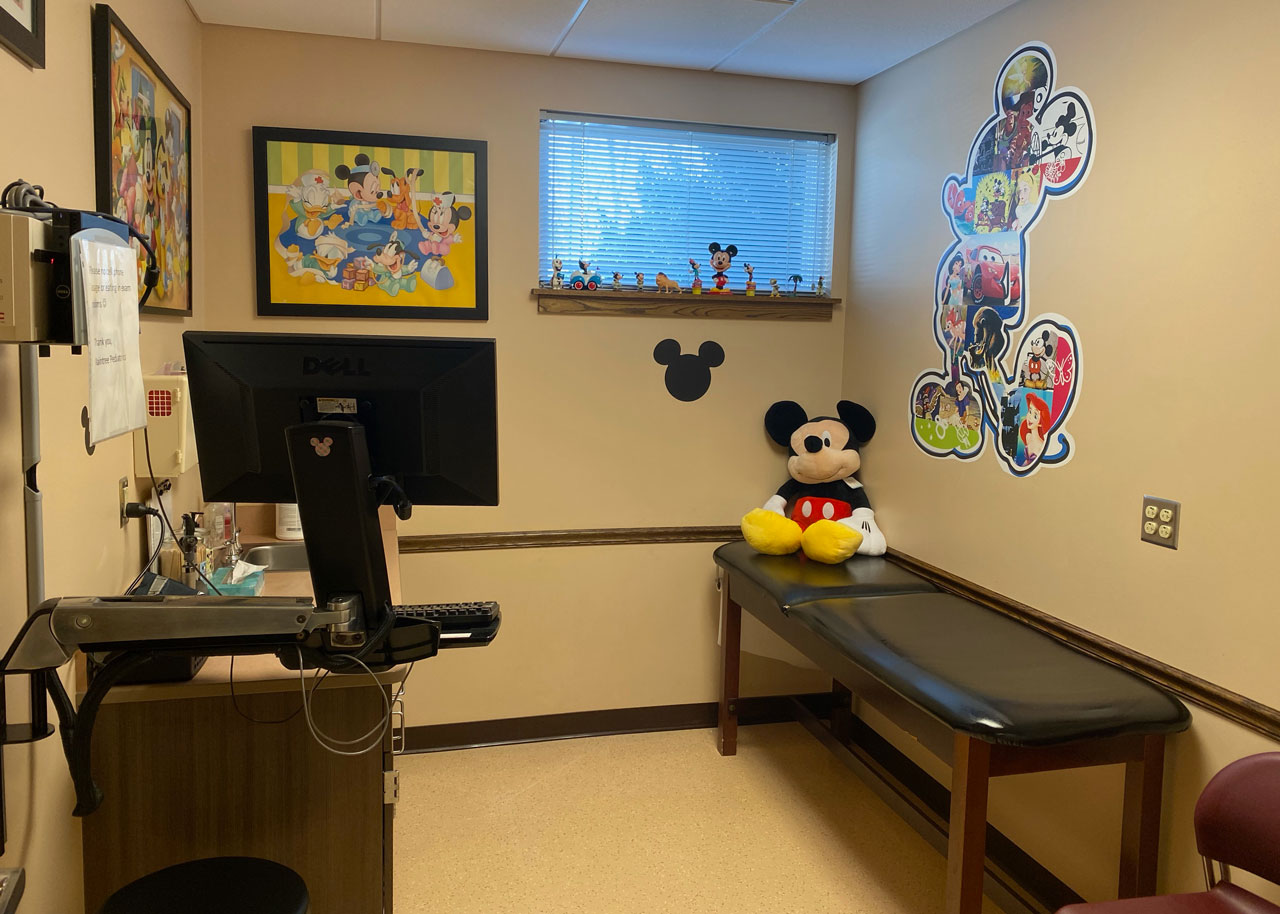Our Services
We have two objectives during each visit. First and foremost, to help your child grow up safe and healthy. Second, to make sure you, as a parent, are prepared (emotionally and with the correct knowledge) to provide the absolute best care for your child. While these objectives remain the same, the approach and tactics we use may change depending on your child’s age.
Immunizations & Flu Shots
Newborns & Toddlers
Pre-School and School-Aged Kids
Adolescents
ADHD & Behavioral Health
Sports Physicals
Free PreNatal Consultation
Immunizations & Flu Shots
Vaccinations are scientifically proven to safely protect children and adults from a variety of illnesses
Immunizations
- Our Pediatric Vaccine Statement (on forms page)
- Immunization Schedule
Immunizations are now available for a variety of viral and bacterial diseases and are directly responsible for the diminished incidence of diphtheria, polio. whooping cough (pertussis), rubella (German measles), rubeola (red measles), tetanus, mumps, and now chickenpox. It is the responsibility of the parent to secure these immunizations. Eradication of most of these diseases is possible when there is a lack of susceptible hosts in the population. Therefore it is important to immunize your child not just for his benefit, but also to further protect others from infections he might otherwise spread.
Disease eradication is possible, as evidenced the disappearance of smallpox, but widespread cooperation is required. The personal benefit is also great, as effective treatment for many of these diseases does not exist. Prevention is best. Vaccines, however beneficial, are not perfect, and many have minor side effects, and rare risks. Your doctor will go over all of this with you before the immunizations are given.
*No pain relievers to be given before immunizations
VACCINE INFORMATION STATEMENTS
A Vaccine Information Statement (VIS) is a one-page (two-sided) information sheet, produced by CDC. VISs inform vaccine recipients — or their parents or legal representatives — about the benefits and risks of a vaccine. The law requires that VISs given out whenever certain vaccinations are given.
Tetanus/Diphtheria/Pertussis (Tdap)
Haemophilus Influenza type b (Hib)
Diphtheria/Tetanus/Pertussis (DTaP)
Vaccines & Autism – Why vaccines aren’t the cause of autism.
As a pediatrician and a father of a son with autism, I am in a unique position to be able to discuss the vaccines and autism topic from both personal and professional levels. This is a very interesting and sometimes volatile topic with people, especially for parents of children with autism or other developmental diagnoses. Many parents ask for guidance regarding vaccines and developmental concerns regardless of whether their child is developing normally or not. Many of my patients (with knowledge that I have a son with autism) ask what I personally do with my own three children regarding vaccines. “Simple! I tell them…. I follow the vaccine schedule as put forth by the Centers for Disease Control and I do not split up nor alter the schedule, even for my own children”. If they ask me how I came to that decision, I let them know of all the science behind my decision (which is summarized below) and that my “Simple” comment above is really rather an in-depth scientific decision.
Newborns & Toddlers
From excitement and joy to stress and nervousness, caring for a newborn can be an emotional roller coaster. To help make this time as comforting as possible, our doctors try to spend a few extra minutes during each visit so you have time to ask any questions you may have.
These are the years when a child makes great strides in cognitive and physical ability such as walking, talking, and learning to use the bathroom. When our doctors see your toddler, they pay particular attention to your child’s developmental milestones.
If the doctor has any concerns, they will share what they are thinking and then share options and provide guidance for next steps. Early identification and intervention are crucial to getting a child back on track and minimizing the future impact of any developmental delays.
Guide: 2021 Recommended Immunizations for Children from Birth Through 6 Years Old
Guide: Recommendations for Preventive Pediatric Care
Pre-School and School-Aged Kids
For some children, this is their first consistent exposure to children outside friends and family, which means exposure to germs. When both parents work, caring for a sick child can be extremely challenging. While the priority is providing the best care for your child, our schedulers, nurses, and doctors are sensitive to the time-challenges an ill child has on your family.
School-age is when the difference between being healthy and sick are no longer abstract concepts for a child. They start to recognize the role a pediatrician has in making them feel good. During visits, our doctors will not only help your child feel better but will also discuss those behaviors that lead to a healthy lifestyle, such as hand washing, teeth brushing, and eating more fruits and vegetables.
Guide: 2021 Recommended Immunizations for Children from Birth Through 6 Years Old
Guide: 2021 Recommended Immunizations for Children 7-18 Years Old
Adolescents
An adolescent’s daily struggle between childhood and adulthood is never more apparent than when visiting a pediatrician. While your teenager may find comfort in seeing the only doctor they have ever known, they may also feel embarrassed sitting in a waiting room with pre-schoolers and school-age children.
Mindful of this struggle, our doctors and staff work to make sure your adolescent is treated with the dignity and respect they so desperately crave at this age.
Guide: 2021 Recommended Immunizations for Children 7-18 Years Old
ADHD & Behavioral Health
From the onset of a suspected diagnosis to the appropriate treatment, we work with parents to help them navigate and understand their child’s many options.
ADHD symptoms can be different for different kids. The diagnosis can’t be done by a lab test or radiology study. It requires input from multiple areas of a child’s life and we follow the guidelines as per the American Academy of Pediatrics. Like any other chronic illness, your child has not done anything “wrong” to develop this disease. You will find important information on the process of diagnosis and treatment in the documents in the forms section of this website.
Sports Physicals
Along with looking for any underlying problem that could impact your child’s health or impede his performance, our doctors make sure to use this time to educate about ways to minimize injury. They talk to your child athlete about drinking enough fluids, eating healthier, and making sure to do appropriate stretching before and after exercising.
Community Choice Pediatrics offers sports and school physicals by appointment during our normal business hours.
Call 816-524-5600 to schedule a sports physical or submit an Appointment Request Form. Click here for existing patient appointment requests or here for new patient appointment requests.
Prior to your or your child’s appointment, please print the pre-participation physical evaluation form and answer all the questions on page 1.
Free PreNatal Consultation
Contact Dena Pepple, RN, at (816) 554-6561
Community Choice Pediatrics provides free of charge prenatal consultations so you can learn about:
- When and how the pediatrician gets involved at the hospital
- Circumcision
- Breastfeeding vs Formula
- Prenatal/Postpartum Education
- Immunizations
- The office: our staff and the convenience of accessing us before, during, and after hours
The prenatal consultation includes a pre-birth through childhood self-management plan so that parents can be informed about the medical care for their child.
We want you to have the advantage of making your decision based on facts and not just a name from a list of doctors.
These appointments are scheduled Monday through Friday during regular business hours.
Our core values

Compassion
We place ourselves in the shoes of our patients and parents as we mindfully listen, observe, and examine judgment-free.

Collaboration
By continually sharing information and seeking the advice and opinions of each other, our patients receive the benefit of the combined knowledge, skill, and experience of all the healthcare professionals who work in the practice.

Community
A safe and healthy child makes a community stronger, and a strong community produces safe and healthy children.


